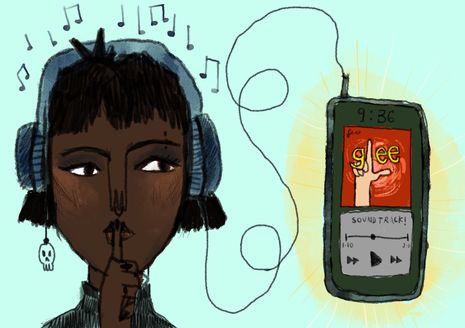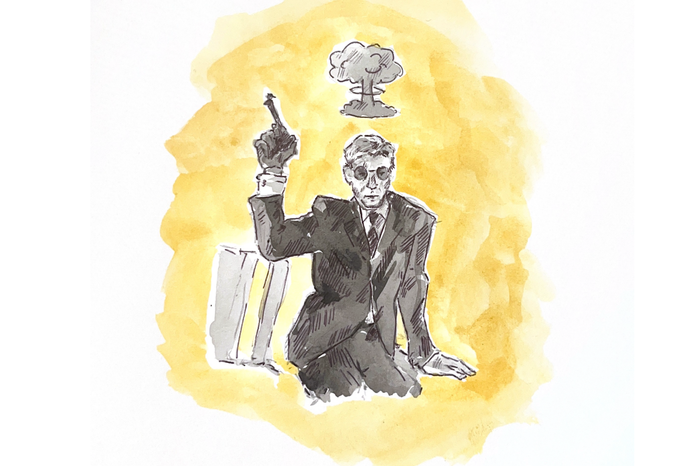Setting the record straight: a secret love of musicals
In a tense political climate, Millie Wooler argues musical theatre is more relevant than ever

I’ll admit it: I’m that student. You can keep your Last Dinner Parties, your English Teachers and your Fontaines D.C.s. I know what real indie music is and where to find the same anxieties and rebellions that characterised the spirit of the early bands of the indie-rock movement. Perhaps you’ve heard of The Reytons, but I’d wager that you’re less familiar with the likes of King No-One, The Lilacs or The Rosadocs. Nadine Shah is as mainstream as my music taste gets.
But there is a secret side to my music taste. One that our culture regards as far less ‘cool’ (although I cringe at the word) than that obscure singer from Newcastle that I claim could teach Sam Fender a thing or two. The shameful secret is that, between Hamish Hawk and Rianne Downey, there is a place in my playlists reserved specifically for musical theatre.
“Les Misérables has a grit and truth that reminds us of the inequality and poverty that many have faced throughout history”
I passed several afternoons last term with my friends, belting out musical soundtracks in an incredibly unflattering way. Our out-of-tune renditions of ‘Who am I? ’, echoing through the ancient halls of whichever college we’ve decided to disturb, may be fun, but they leave little credit to the driving messages of injustice and redemption that make Les Misérables what it is. Unlike the media’s stereotyped depiction of the glossy, Glee-style musical, Les Misérables has a grit and truth that reminds us of the inequality and poverty that many have faced throughout history, and to this day. Granted, much of that particular show’s credibility is derived from Hugo’s novel, rather than the 1985 adaptation, but it still delivers an impactful reminder of the severe violence and injustice endured by millions.
Certainly deriving its credibility from its present state, Willy Russell’s Blood Brothers is a coming-of-age tale like no other. Written in 1983, it is easy to argue that the world has changed a lot since its first performance in Liverpool. Yet its central tension of the impact of nature versus nurture seems more urgent now than before. ‘Take a Letter Miss Jones’ is far too familiar in terms of the increasing pressures on working-class communities. Its betrayal of the complicit addressee emphasises a certain sense of alienation and isolation that many are feeling in relation to modern politics. The narrator’s final speech twists the dagger plunged in by Mrs Johnstone’s mourning for her sons, reminding us that all this destruction was avoidable, if only the societal systems that we uphold were replaced by something other than class.
“Somehow, Elton John’s foray into musical theatre doesn’t sit quite right next to The Smiths’ entire back catalogue”
Billy Elliot derives its power from a similar place. It, too, tells the story of working-class Northern communities ripped apart by careless governments that prioritise national progress over the well-being of individual communities. The original 2000 film has become a staple of British cinema and was a constant presence in my childhood. That said, the 2005 musical adaptation really should not form such a central part of my personal playlists. Somehow, Elton John’s foray into musical theatre doesn’t sit quite right next to The Smiths’ entire back catalogue. Their fan bases are yet to find much common ground. Yet its moving portrayal of a young boy struggling to recognise his own identity against the background of the miners’ strike aligns perfectly, in my opinion, with the outsider narratives of early indie music.
Lee Hall’s songs deliver the same balance of personal and political strife. ‘The Stars Look Down’ is one of the most spine-tingling openings to a show that I’ve seen, and this translates into the album version. As for ‘Merry Christmas Maggie Thatcher’, it fits quite naturally into my playlist, somewhere between Billy Bragg’s ‘Thatcherites’ and Elvis Costello’s ‘Tramp the Dirt Down’. Billy Elliot, like Blood Brothers, handles beautifully the balance between the immensely personal central narrative about the search for identity and the broader political turbulence that governed many of the lives depicted.
“Student theatre can capitalise upon the engagement of its creatives in current political discourse”
It’s not too far away from what Cambridge has seen recently. Caryl Churchill’s Far Away recently graced the stages of the Corpus Playroom in a passionate and driven performance. Perhaps more than any other genre, student theatre can capitalise upon the engagement of its creatives in current political discourse to deliver urgent, didactic performances.
Musicals are not easy to stage – certainly not in such a way as to eliminate their more cheesy elements. But if Jaeyan Lian’s production of The Bridges of Madison County tells us anything, it is that Cambridge certainly has the creative talent to deliver.
So, perhaps it is time to redefine the musical. And maybe then I don’t have to be embarrassed when ‘If Only’ from Lloyd Webber’s Whistle Down the Wind comes on between Liam Fender and Hannah Grae. Musicals can be credible, and they can have as much to say about the current state of the world as the likes of that ‘Voice of the Voiceless’, Jamie Webster.
Want to share your thoughts on this article? Send us a letter to letters@varsity.co.uk or by using this form
 News / Right-wing billionaire Peter Thiel gives ‘antichrist’ lecture in Cambridge6 February 2026
News / Right-wing billionaire Peter Thiel gives ‘antichrist’ lecture in Cambridge6 February 2026 Features / From fresher to finalist: how have you evolved at Cambridge?10 February 2026
Features / From fresher to finalist: how have you evolved at Cambridge?10 February 2026 Film & TV / Remembering Rob Reiner 11 February 2026
Film & TV / Remembering Rob Reiner 11 February 2026 News / Churchill plans for new Archives Centre building10 February 2026
News / Churchill plans for new Archives Centre building10 February 2026 News / Epstein contacted Cambridge academics about research funding6 February 2026
News / Epstein contacted Cambridge academics about research funding6 February 2026










